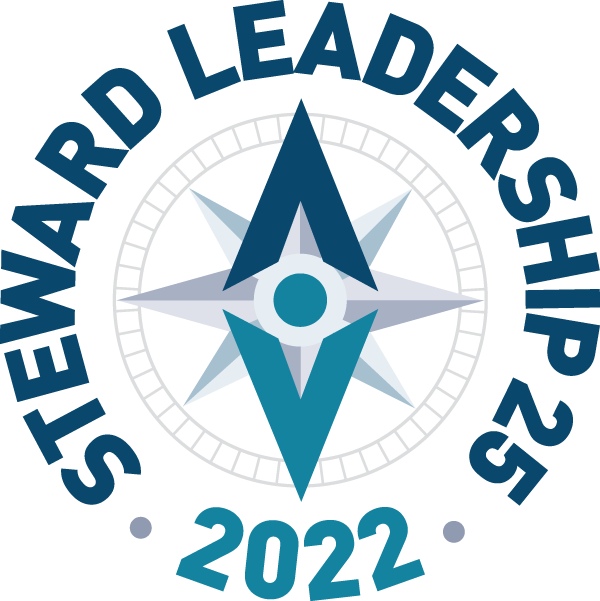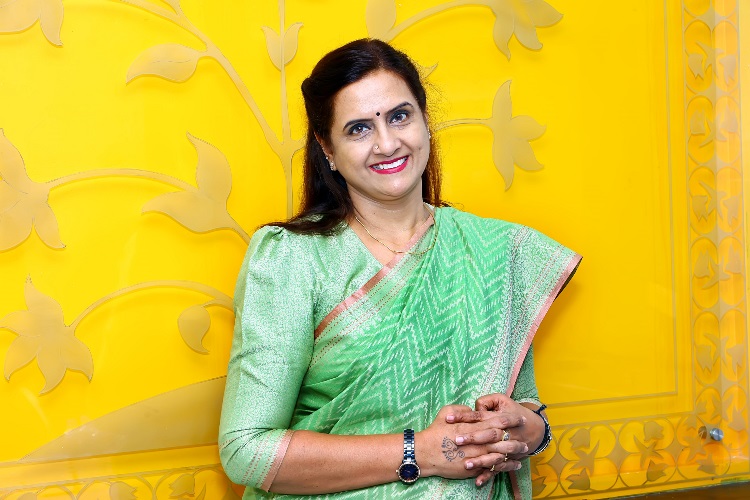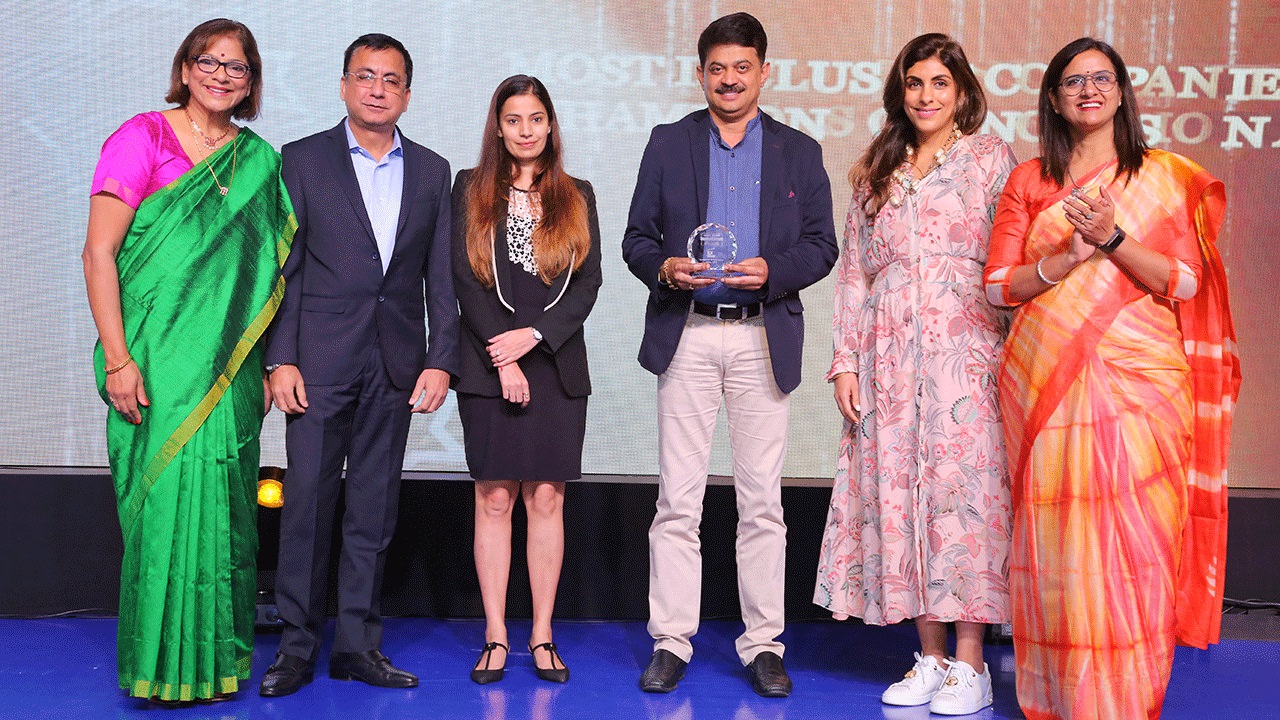The journey at Avtar has been led by a vision of transforming Indian workplaces to become gender inclusive.
India has one of the lowest women's workforce participation rates in the world despite its burgeoning economic progress. Avtar's purpose is driven by the immense social, financial and business implications of improved women's workforce participation in the country. Avtar creates job opportunities for underrepresented talent groups and enables large employers to implement diversity, equity and inclusion (DEI) measures in their workplaces.
Towards this vision, Avtar instituted corporate India's largest diversity analytics exercise called Avtar & Seramount Best Companies for Women in India (BCWI) in 2016. The initiative lists the 100 best companies alphabetically to encourage more companies to participate in the study and learn from best practices and market benchmarks without the fear of public ranking. It identifies and shares best practices for gender inclusion and provides benchmarks on women's employment across various industries, like IT/ITES (information technology/information technology-enabled services), BFSI (banking, financial services and insurance), FMCG (fast-moving consumer goods), pharmaceuticals and manufacturing.
Over the past six years, the BCWI, the first of its kind in India, has become the key reference for every organisation that believes in an inclusive culture.
![images_m8wrk_BCWI2018_EY[1].jpg](/images/digitalhublibraries/articles-categories/59537b27-b117-4773-be77-9f49b082ac3e.jpg?sfvrsn=f8fb0416_2)
Ernst & Young at the BCWI 2018
The BCWI does not charge for participation. The study has had six successful editions from 2016 to 2021, creating a new list of the 100 Best Companies for Women in India each year. Based on diversity data submitted through standardised application forms, the companies are chosen for their policy impact towards improving women's workforce participation, such as recruitment practices, safety and security, flexible work, childcare support, and management accountability towards DEI.
Even as Avtar evangelises the concept of equitable practices and creates career opportunities for underrepresented talent pools, it also works with leaders to build diversity thinking as a meta-competence. Leadership gains greater perspective with the ability to recognise similarities within differences and arrive at pluralistic solutions that serve diverse groups. In part due to widespread dissemination of information about DEI emerging from the BCWI, the Indian C-suite is becoming convinced of the value of DEI, and leaders are striving for cultural interventions within their organisations.
In a world united by the tailwinds of similar experiences spanning across geographic boundaries, it is essential for leaders to not only be role models of agility or innovation but also builders of consensus and empathy.
The impact
From 2016 to 2021, the initiative continued to influence policies for including women at the workplace in India, resulting in an increase of women's representation in the 100 best companies from 25 per cent in 2016 to 34.5 per cent in 2021. Avtar's long-term view is to enable gender balance in corporate India, ably supported by inclusive and equitable work cultures. In 2019, the initiative expanded to recognise organisational efforts in other strands of diversity, including Persons with Disabilities (PWDs), members of the LGBTQ+ community, and regional diversity, through the “Most Inclusive Companies Index.” The percentage of companies on the Index focusing on PwDs rose from 58 per cent in 2019 to 88 per cent in 2021, while the focus on the LGBTQ+ community rose from 23 per cent in 2019 to 83 per cent in 2021.
Both the BCWI and MICI initiatives have been able to influence the “social” pillar of ESG critically. The study has led to increased women's representation and greater company focus on diversity strands of PWDs and LGBTQ+. The number of Best Companies on the BCWI providing programmes to hire women on career breaks rose from 53 per cent in 2019 to 71 per cent in 2021. This is in direct correlation with the employment equality and gender diversity pillar of ESG.
![images_q2f10_PressConference_2022[1].jpg](/images/digitalhublibraries/articles-categories/75db2286-9082-4083-83e7-8393a8de5ec4.jpg?sfvrsn=7d99d443_2)
Press conference for the BCWI and MICI initiatives 2022
The initiative has also led to better DEI governance in organisations that participated in the study. In 2019, 30 per cent of companies held their managers accountable towards their team goals of gender diversity. In 2021, 46 per cent of companies reviewed commitment to DEI during performance reviews of managers. The number of companies focused on supplier diversity also rose by 13 percentage points, from 33 per cent in 2019 to 46 per cent in 2021.
Innovation highlights
Being corporate India's first and only large format study that tracks diversity metrics and contributes to national benchmarks on gender diversity, the BCWI has enabled generous sharing and showcasing of several best practices towards gender inclusion. The initiative bases itself on one of the most strategic leadership aids of our times – data – helping leaders in discerning organisations and devising informed strategies for a DEI agenda.
Future of BCWI-MICI
Even in years disrupted by the Covid-19 pandemic, the study continued to draw hundreds of Indian companies. A genuine focus on DEI has become a highly respected and tracked key result area for all C-suite leaders. Towards moving closer to our vision and purpose of improving women's workforce participation, we hope to increase the number of participants in BCWI-MICI in India and help them with appropriate market benchmarks and best practices to identify, recruit and develop more diverse talent. We also plan to create similar studies for corporate markets in the Middle East and Singapore.

Avtar Group (FLEXI Careers India Pvt. Ltd) is founded by Dr Saundarya Rajesh, an award-winning social entrepreneur and one of India's most respected thought leaders on Diversity, Equity & Inclusion. Avtar pursues a vision of improving women's workforce participation in Corporate India and building equitable and inclusive workplaces where diverse talents can thrive.
Learn more about Avtar Group through their website. To collaborate or connect, reach out directly to our SL25 team.
Connect













